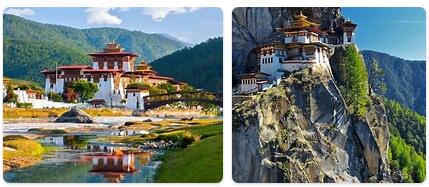Bhutan, with its pure nature and distinctive culture, is an exciting destination. The Bhutanese Ministry of Tourism has a set minimum daily tariff for visitors to Bhutan. The price includes accommodation, all meals, transport, guide and cultural program if possible. The daily rate is $ 200 or $ 250, depending on the season. There is no Norwegian foreign service station in Bhutan. The nearest Norwegian foreign service is the embassy in New Delhi.
Safety
There is no Norwegian foreign service station in Bhutan, the nearest Norwegian foreign service station is the embassy in New Delhi. As the Norwegian Foreign Service has no posted official on site, it is challenging to obtain supplementary travel information from here. We recommend that you read our general advice and obtain information about the destination before traveling.
It is illegal to buy and sell tobacco products in Bhutan. It is possible to import 200 cigarettes by paying tax and import duty of 200 percent. You must be able to produce a receipt from the Customs Service if you are stopped by the police with cigarettes, if you do not risk being taken for smuggling, which has a sentence of up to three years in prison.
Homosexuality is criminalized in Bhutan, but it is a dormant law and so far no one has been charged for this in Bhutan.

Entry
Please note that entry regulations may change. The Foreign Service is not responsible if the following information on entry regulations or visa requirements is changed at short notice. It is the responsibility of the traveler to ensure that travel documents are valid for entry and to familiarize themselves with the current entry rules for each country.
You need a visa to enter Bhutan. Visas must be applied for through an authorized travel agency in Bhutan, either directly or through a foreign travel operator. The visa will be issued when the entire trip is paid. The standard processing time is ten business days.
If you are traveling on a non-tourist basis to Bhutan, you must apply for a visa through the organization you are visiting. One cannot buy air ticket to Bhutan until a visa has been issued.
Tourists can only reach Bhutan by bus or car via the Indian border crossings Phuentsholing, Samdrup Jongkhar and Gelephu or by plane to Paro from Thailand, Nepal or India.
You can only fly to Bhutan with the national airline Druk Air or Bhutan Airways. The airlines fly from Calcutta and New Delhi in India, from Bangkok in Thailand and from Kathmandu in Nepal. The airlines fly several times a week from these destinations to Paro Airport in Bhutan.
The flight to Bhutan offers a magnificent view of the Himalayan mountain range, and the approach gives you a feeling of almost touching the mountain before landing in Paro, which is at 2200 meters altitude.
The Bhutanese Ministry of Tourism has a set minimum daily tariff for all visitors to Bhutan. The price includes accommodation, all meals, transport, guide and cultural program if possible. The daily rate is $ 200 or $ 250, depending on the season.
Health
Coronavirus (covid-19): The virus, which originated in the city of Wuhan in Hubei Province, China, was later detected in several other countries. On March 5, the first case of the virus was detected in Bhutan. In response, the Bhutan authorities, with effect from March 6, decided to refuse entry for foreigners.
Norwegian travelers should keep abreast of the development of the corona virus. Feel free to follow local authorities’ advice, guidance and instructions on how to deal with the situation.
The Ministry of Foreign Affairs does not create travel advice because of the risk of infection. It is the Public Health Institute that provides health professional travel advice. You can find more information and guidance about the corona virus from Norwegian health authorities on the website of the Norwegian Institute of Public Health.
***
There are currently no compulsory vaccinations for travelers to Bhutan. But yellow fever vaccination is required from travelers coming from countries at risk of yellow fever.
It is recommended to contact your doctor and/or the National Institute of Public Health for an overview of which vaccines are recommended for your itinerary.
Practical information
Bhutan is geographically the size of Switzerland, with about 763,000 inhabitants. The country borders India and China. It is a constitutional monarchy that held its first democratic elections in 2008. Third parliamentary elections took place in October 2018. The election gave victory to the party Druk Nyamrup Tshogpa, who won 30 of the 47 seats in the House of Commons. Prime Minister is now Lotay Tshering.
Major cities: Thimphu (capital), Punakha, Tsirang and Paro where Bhutan International Airport is located.
Language: Dzongkha has the status of national language. Nepali is spoken in border areas towards Nepal
Land area: 47,000 km 2
Population growth: 1.13 percent
Time difference to Norway: 5 hours (winter time), 4 hours (summer time)
International telephone code: + 975 (see allcitycodes)
Wifi is available in most hotels
Bhutan’s currency is called Ngultrum and is governed by the value of the Indian rupee. Ngultrum cannot be exchanged from Norway. Indian rupee, on the other hand, is also accepted as a means of payment in Bhutan. It is possible to use credit cards in an increasing number of hotels and in some stores. Many government agencies only accept cash payment. Only a few of the capital’s ATMs accept international cards. It is recommended and bring Indian rupee, US dollar, British pound or euro in the form of cash or traveler’s checks.
Information about Bhutan can be found on the country’s tourist sites.